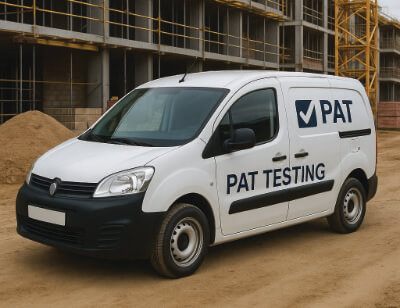How to Become a PAT Tester

Portable Appliance Testing (PAT) is an important aspect of health and safety in various workplaces, residential spaces, and public institutions. If you're considering a career as a PAT tester, this article will guide you through what the job entails, the qualifications you need, training courses, and finding a job.
What is a PAT Tester?
A PAT Tester, or Portable Appliance Tester, is a professional who conducts safety checks on electrical appliances to make sure they are safe to use. The PAT testing process involves a series of inspections and electrical tests on electrical equipment, including computers, kitchen appliances, and power tools, among others. The primary role of a PAT tester is to identify any potential risks and ensure they're addressed before causing harm. They might also conduct minor repairs if required.
What the Job Entails
Your services will be required at various client locations, so your job will usually take you on the road and across many different types of businesses – from schools, offices, and construction sites, to retail establishments, hospitals, care homes, and even rented residential properties. Any environment with electrical equipment is a potential workspace, making each day diverse and interesting, but a willingness to travel and a driving license are essential.
Customers will often require the work to be done outside traditional office hours. This might include evenings and weekends, to ensure minimal disruption to the customer's regular activities. Therefore, a flexible approach to work schedules is a critical requirement in this role.
You will be interacting directly with clients and often, the users of the equipment you're testing. Whether it's arranging the logistics of your visit or explaining the results of your inspections, your ability to express yourself professionally and confidently is important.
The job requires a good level of fitness. A typical workday involves a significant amount of time on your feet, and you often find yourself needing to crawl under desks to access sockets and plugs.
A keen eye for detail is required to ensure faults are identified. Following each test, you'll document the results and complete the necessary paperwork to report any identified faults and work done. It is also usually expected that you will be able to make minor repairs such as replacing or rewiring a plug.
Qualifications Needed
To become a PAT tester, you do not necessarily need any specific academic qualifications. However, it is generally expected that you will have the City & Guilds 2377-77 qualification for Electrical Equipment Maintenance and Testing. Some companies may require you to have this qualification to apply for the role, but many others will provide training for you to work towards this qualification.
Attending a Course
Attending a PAT testing course will teach you the practical skills required for the inspection and testing, in addition to providing an understanding of electrical safety principles and equipment construction. We would recommend attending a course with the City & Guilds 2377 qualification if you are looking to pursue a career as a PAT tester. However, before investing in this qualification, it may be beneficial to consult with potential employers first as they may be willing to put you on a course after they have taken you on.
How Much Will You Earn?
Typically, the basic yearly salary for a qualified PAT tester ranges from approximately £22,000 to £28,000. However, the total earning potential can be higher when considering additional benefits offered by many employers. For instance, a performance-related bonus is quite common in this field. This bonus is often linked to your productivity, reflecting the number of items you have successfully tested. Some PAT job listings suggest a realistic earning potential including bonuses of up to £35,000. Additional benefits may include a company car or van.
Finding a PAT Job
There is usually a high demand for skilled PAT testers. Most jobs will be listed on online job platforms such as LinkedIn, Indeed, and Totaljobs. Use keywords like "PAT tester," "electrical safety," and "portable appliance testing" to focus your search. We also have a jobs board of current PAT vacancies on our website.
Reaching out directly to companies offering PAT testing services is also an effective method of finding a PAT testing job. Even if they don't have any immediate vacancies, they will usually keep your details for upcoming opportunities. They will often also provide useful advice about the specific skills and experience they prioritise when hiring, helping you tailor your preparation accordingly.
Where Can a PAT Tester Career Lead?
Once established as a PAT tester, various opportunities can open up for career progression. With experience, you could advance to a supervisory or managerial role within a PAT testing company, overseeing the work of other testers and ensuring high standards are maintained. If you have an entrepreneurial spirit, you could consider starting your own PAT testing business. Starting as a PAT tester can also be a first step on the ladder to becoming a qualified electrician. The practical skills and electrical safety knowledge gained from PAT testing will often lead to more advanced electrical training and job opportunities.
Setting Up a PAT Testing Business
For those interested in being their own boss, setting up a PAT testing business is an attractive option. You'll need some essential tools such as a PAT testing machine, labels, and usually some sort of software to generate test records for your customers. You will also need insurance to cover any liabilities, but the setup costs when compared to many other businesses are relatively low. You will need to carefully consider how you will market your services effectively, both online and offline to attract clients. Providing an excellent service will be key to your success. Once established, a good proportion of your work is likely to come from retesting for existing customers.